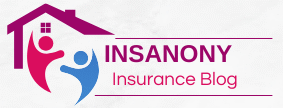Business insurance protects companies against property damage, lawsuits and income losses. While not required by law, investing in this coverage can be invaluable to any organization that operates a location or visits client locations or rents space.
Cost of policies depends on various factors, including industry work classification, payroll costs and experience modification rates. Some policies have distinctive names and can be more costly.
1. General Liability
General liability coverage is one of the most essential forms of business insurance, protecting you from lawsuits and costly claims that arise if someone (other than employees) gets hurt on your premises or as a result of the work your business performs for others. Some clients may even require this coverage before agreeing to work with you.
General liability covers numerous claims related to injuries sustained when customers slip over boxes in your store and sprain their ankle. Furthermore, it covers damage done to third-party property (like lawnmowers kicked by landscaping teams destroying windows of clients) as well as allegations of personal or advertising injury such as libel or slander against you or your employees.
Your business can obtain general liability coverage either as an independent policy or part of a Business Owners Policy (BOP). Your premium for general liability depends upon the work your business performs, its size and claim history.
2. Business Owner’s Policy (BOP)
Business owner’s policy insurance (BOPs) are essential in protecting companies against the costs associated with lawsuits and property damage, providing general liability and commercial property coverage in one package for buildings, equipment and more. Companies with less than 100 employees and annual revenues of $5 million qualify for BOPs as an affordable solution; an insurance broker can help assess risks to determine if a BOP would work well with your organization.
BOPs’ primary advantage lies in their bundle approach, which cuts expenses while making managing multiple policies simpler. Unfortunately, however, BOPs tend to exclude specific policies such as workers’ compensation and professional liability (Errors & Omissions Insurance). If your business faces threats from common sources like workers’ comp or professional liability (Errors & Omissions), consider including these safeguards within your BOP plan to fully safeguard it against common threats. You could also consider business interruption insurance that covers lost income if a covered event such as fire or natural disaster causes your company to close down.
3. Business Interruption Insurance
Business interruption insurance provides coverage to cover expenses while your business is closed due to damage from an insured peril, such as rent, mortgage and utilities costs. It typically reimburses lost revenues as well as extra expenses like rent mortgage and utilities costs as well as employee wages while keeping staff intact during closure periods and may cover loan payments too. Some policies also include civil authority coverage which reimburses when access is restricted by government actions such as quarantines.
Business interruption policies should be an essential element of every business owner’s risk management portfolio. They can also be combined with other insurance policies for added protection – for instance, they can be combined with cyber liability policies to guard against data breaches and cyberattacks. To get the best results, it’s recommended that business owners purchase their policy through an insurer specializing in business owners so as to receive adequate coverage tailored to their unique needs and various endorsement options to expand coverage as required.
4. Cyber Liability
Cyber liability coverage provides coverage against financial losses caused by cyber attacks or data breaches, including legal fees and data recovery expenses. Businesses storing customer contact info, personally identifiable information (PII), credit card numbers or sales data on computers or servers need this insurance as soon as possible.
Hacker attacks can have a devastating impact on any business and reputation, leaving both vulnerable to temporary income losses as well as lost customers, lawsuits and expensive hardware repairs or replacement. Cyber insurance provides valuable coverage against various issues related to hacking attacks such as:
Cyber liability policies tend to exclude physical damage that’s covered by other policies, so they’re often purchased as a supplement to business property insurance policies. They may also cover extortion of ransom money and prior acts (events that took place prior to when your policy took effect) coverage; regardless of how big or small your business might be. Cyber liability protection should always be included as an essential coverage feature.
5. Product Liability
Product liability policies provide businesses with legal costs and compensation should a customer claim your products caused injury or property damage. Also referred to as products-completed operations insurance, product liability is essential protection for those that manufacture, distribute or sell physical products.
Note of caution: Product liability claims can be very expensive for companies that find themselves facing lawsuits, especially with the advent of third-party litigation funding and social inflation. Affording businesses producing, distributing or repairing products adequate coverage is vital – along with general and property policies.
Each company faces unique risks and challenges. When discussing business insurance needs with us today, please take time to speak to an experienced broker who understands your industry, location, activities and types of policies available – taking this extra step can better prepare your organization against disaster and unexpected costs! Reach out now so we can show you more.




